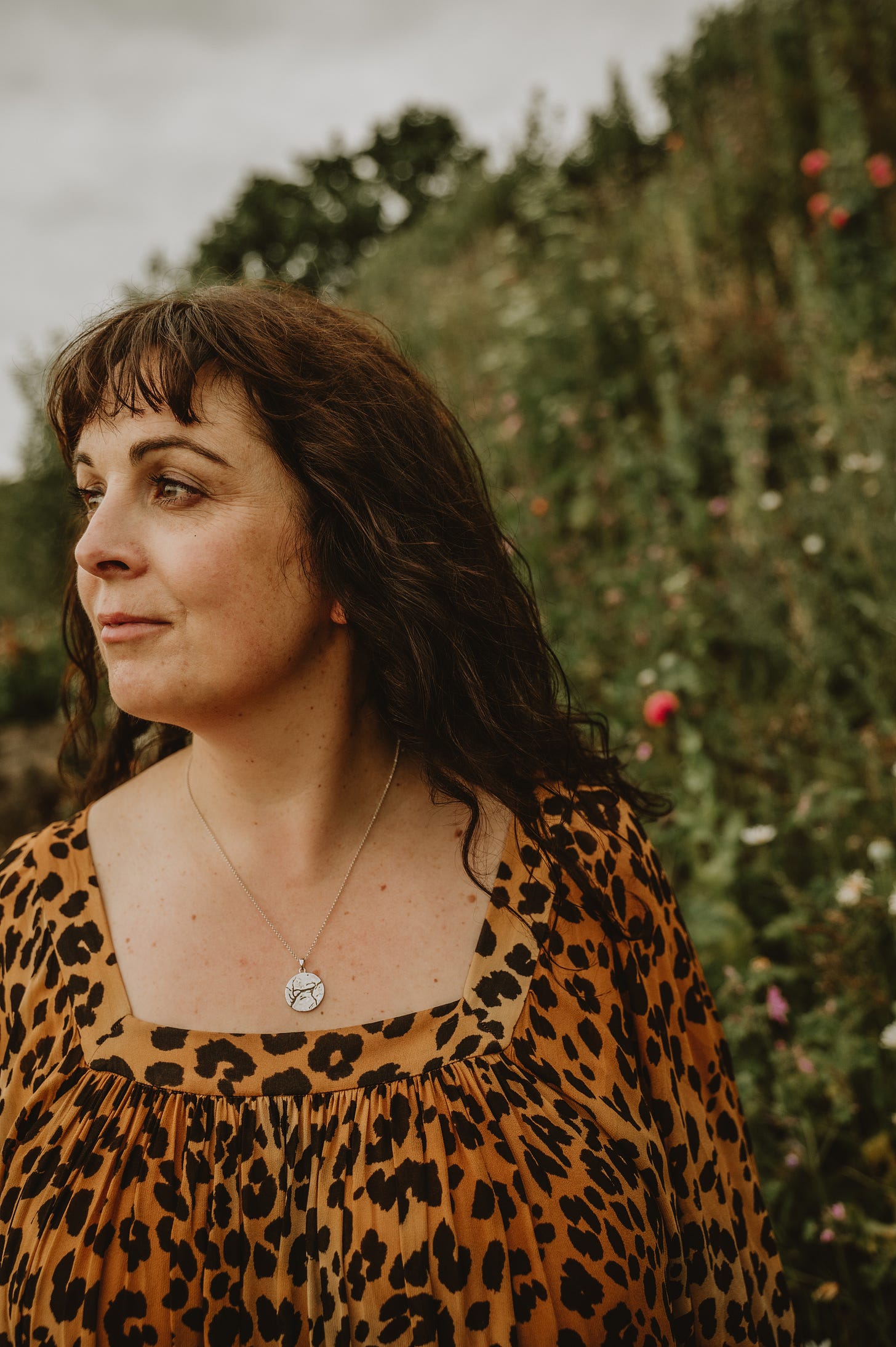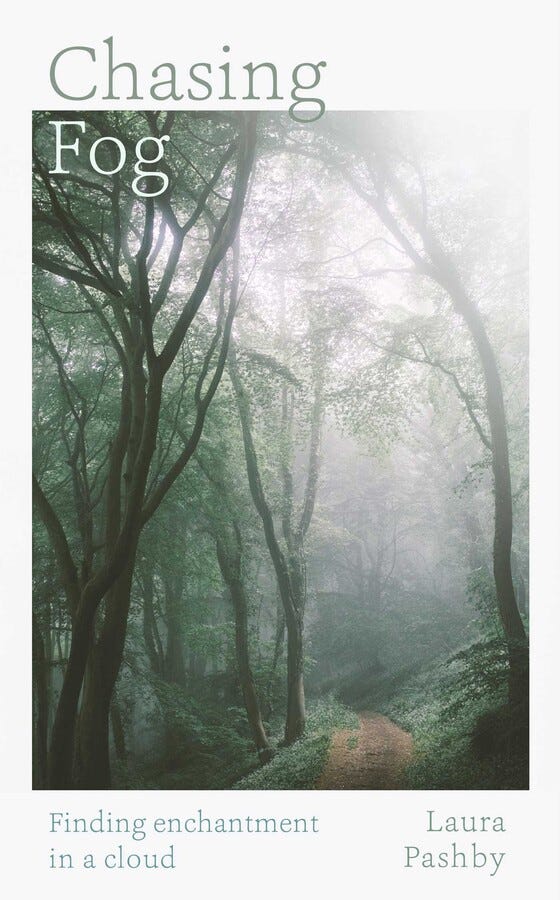Laura Pashby on Nonfiction
What book changed your writing forever?A new interview series.
As writers, we often put ourselves in boxes. What is the “correct” way to write? How can I make this a “good” book? Am I doing it all wrong?
There is a type of book I absolutely adore: the kind that encourages me to break rules I didn’t know I was following. I call these “Oh - you mean we’re allowed to do THAT now?” books.
In order to help us write more the way we want to, rather than the way we think we’re supposed to, I’ve started this series.
I’ve sent the same list of questions to a number of writers I admire, and will be sharing their responses with you as they come in. Hopefully, we’ll have two a month going forward. I can’t wait for us to have a giant list of rule-destroying books to inspire us all.
Shall we begin?
Laura Pashby
My first interview is with Laura Pashby, who writes the gorgeous Substack Small Stories with Laura Pashby. Fun fact about this interview: when I read what she’d shared, I actually squealed like I was four years old, because she’d selected one of my favorite books ever.
What a gift to begin this series with a sense of everything clicking into place. Let’s dive into the magic, shall we?
What book changed the way you write most dramatically?
The Faraway Nearby by Rebecca Solnit
What about the book did you love / were you most impacted by?
I received the book as a gift from my brother who lives in the US. At the time, I had not heard of Rebecca Solnit but I was floored by her writing right from the first page:
“What’s your story? It’s all in the telling. Stories are compasses and architecture; we navigate by them, we build our sanctuaries and our prisons out of them, and to be without a story is to be lost in the vastness of a world that spreads in all directions like arctic tundra or sea ice. To love someone is to put yourself in their place, we say, which is to put yourself in their story, or figure out how to tell yourself their story.”
Solnit’s concept of story changed everything for me. I had previously thought of narrative as belonging only to fiction, but stories, I now realised, belong to all of us—they are who we are, they hold everything together.
What rules did it help you realize you were following in your writing?
Before reading this book, I was a product of my English Literature degree—I had unbending ideas about genre, and what ‘good’ writing should look like. I hadn’t found a way of writing that worked for me because I was intimidated by the (narrow) literary canon I had studied, and I was too preoccupied by getting it ‘right’.
What transformation did it catalyze? (Or what permission did it grant you as a writer?)
The Faraway Nearby introduced me to the freedom and fluidity of narrative non-fiction. I came to realise that I could tell stories without writing novels or poems: the world itself is already full of stories. Solnit’s book touches on a wide range of themes (the initial chapters are called Apricots, Mirrors, Ice, Flight, Breath), combining to form an overarching narrative with an exploration of story itself at the book’s heart. After I turned the final page, I thought ‘I want to write a book like that.’ Not that I hope to aspire to Solnit’s incandescent prose—she’s incomparable—but I knew I wanted to seek out stories and weave them together: I wanted to write a narrative non-fiction book.
How has the transformation continued since then?
Last month, several years after reading Solnit’s book, I published my first narrative non-fiction book, Chasing Fog. Like The Faraway Nearby it contains elements of memoir (although this had not initially been my intention). Of her book, Solnit uses the term ‘anti-memoir’. Mine was more of an accidental memoir, but other stories are there, too, so many foggy stories.
Before my book was published, I received an email from my editor with the following feedback from the copy-editor:
‘Laura Pashby can take her place alongside Rebecca Solnit and Sharon Blackie as one of the ‘questing, enchanted females’ who are rewilding the written word with their beautiful prose…’
It was all I could have ever hoped for. Later, Sharon Blackie herself read my book and described it as: ‘a lushly sensuous exploration of the many possibilities that arise from fog, so vivid that by the end I could feel it clinging to my skin.’
Who would you recommend this book to most?
To writers, and to anyone who is interested in the meaning and significance of story. But also to readers—if you appreciate beautiful writing, if you are interested in fairytales , lineage, Iceland, Frankenstein or time you should read (and wonder at) The Faraway Nearby.
What are you working on now?
In the rare quiet moments when I am not working on promotion for Chasing Fog or writing my Substack, I take out a slim green notebook with a sunburst cover. Within its pages are the first glimmers of an idea for a new narrative non-fiction book. There are always more stories to tell…
Have you read The Faraway Nearby?
Share how it impacted your writing — or not — in the comments:
More about Laura and her writing
Laura Pashby is a fog-loving writer and photographer. She lives in the Cotswolds countryside with her husband and three sons, where she walks the woods and hills with her camera. Her latest book Chasing Fog is now available in bookshops. Laura’s bestselling Substack ‘Small Stories’—a search for magic and meaning in the form of letters from her writing desk—was a Substack Featured Publication 2023.
Chasing Fog is the story of a search for an elusive weather condition that makes the ordinary seem strange. A blend of nature-writing and memoir, it's a love song to weather and nature’s power to transform. Chasing Fog is published by Simon & Schuster and is now available in bookshops.
'eerie and evocative' - Cal Flyn | 'haunting and beautiful' - Rebecca Schiller | 'a clear-sighted and loving ode to fog' - Alice Vincent | ‘lushly sensuous’ - Sharon Blackie
Find Laura at @circleofpines on social media








Rebecca Solnit is one of my favourite writers and her book "The Field Guide to Getting Lost" is a book I return to again and again. For days I have been looking for a quote about places and what they can give us in that book but have been unable to find it. Just this morning, though, I realized that it was actually from "The Faraway Nearby". I'm taking Laura's recommendation as a sign to re-read it.
Adding her recommendation to the list! (Both Rebecca and Laura)
Vicki